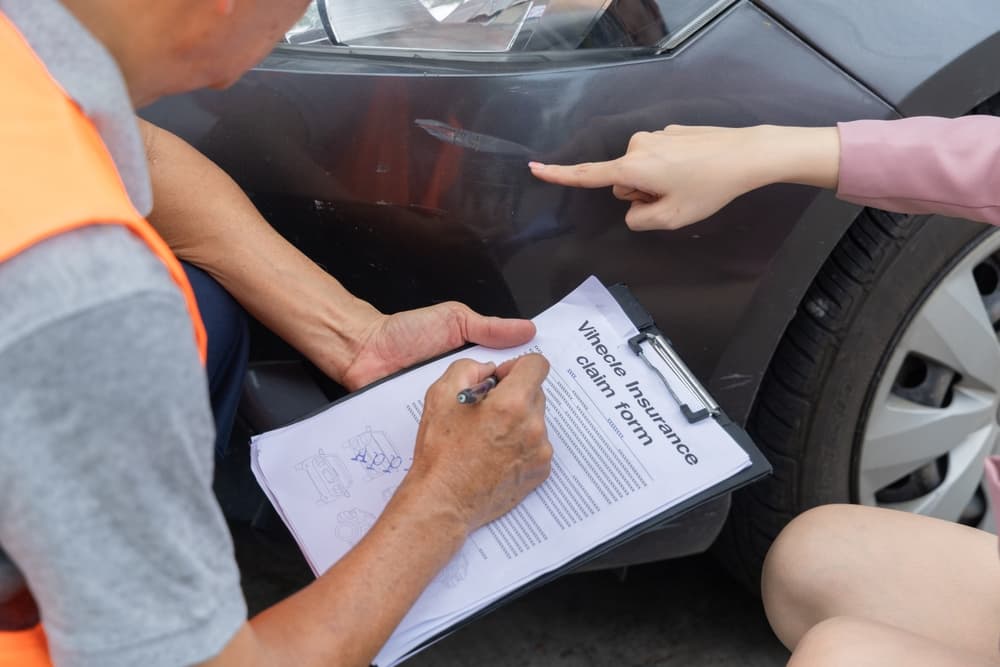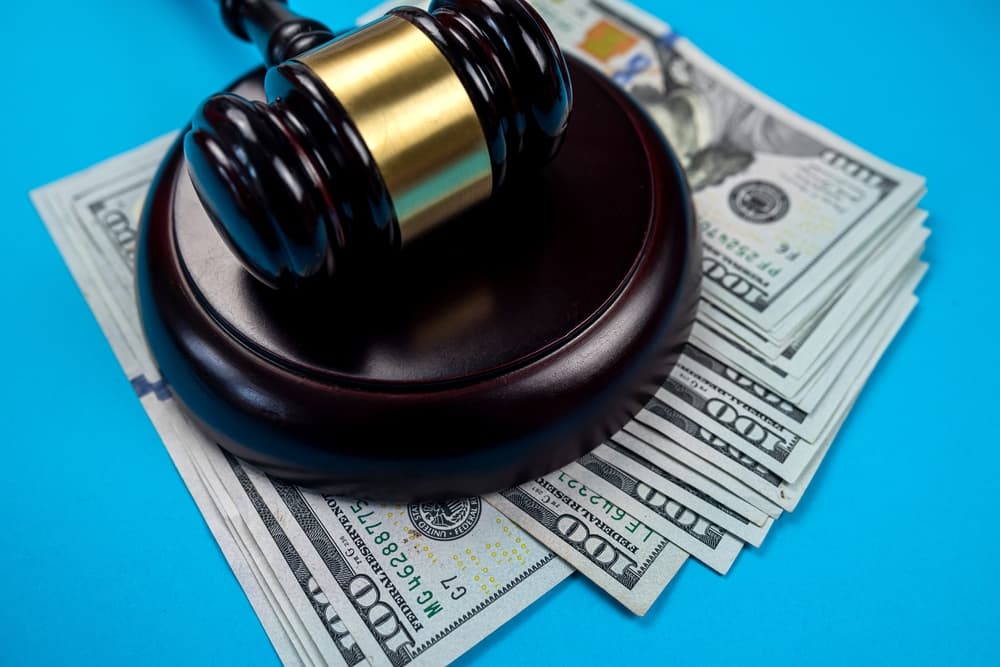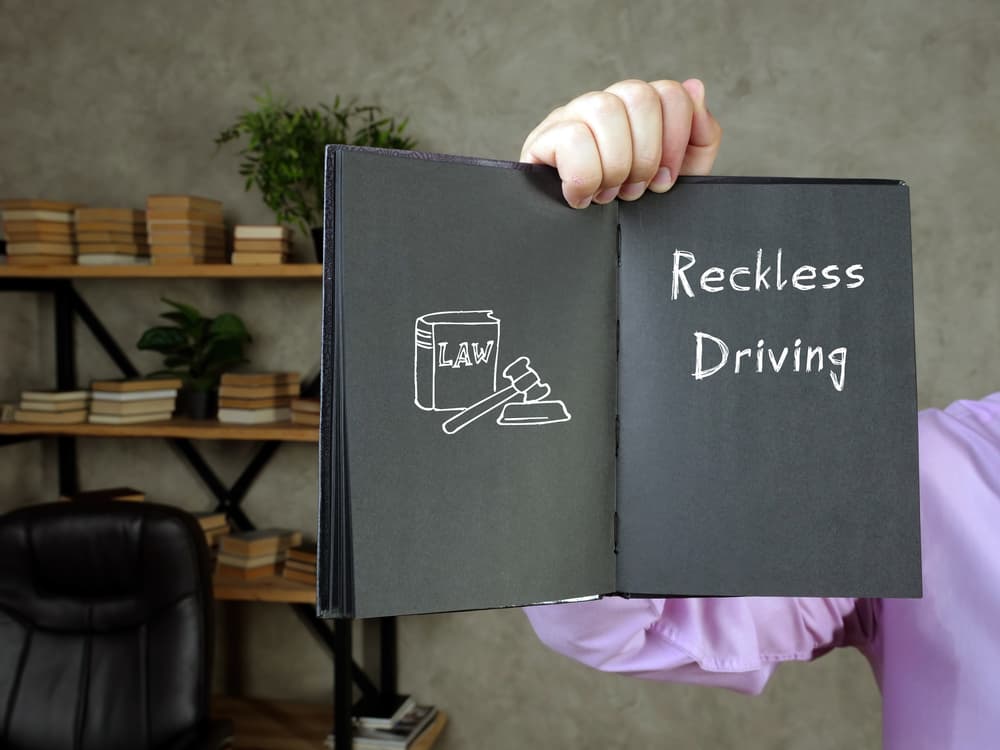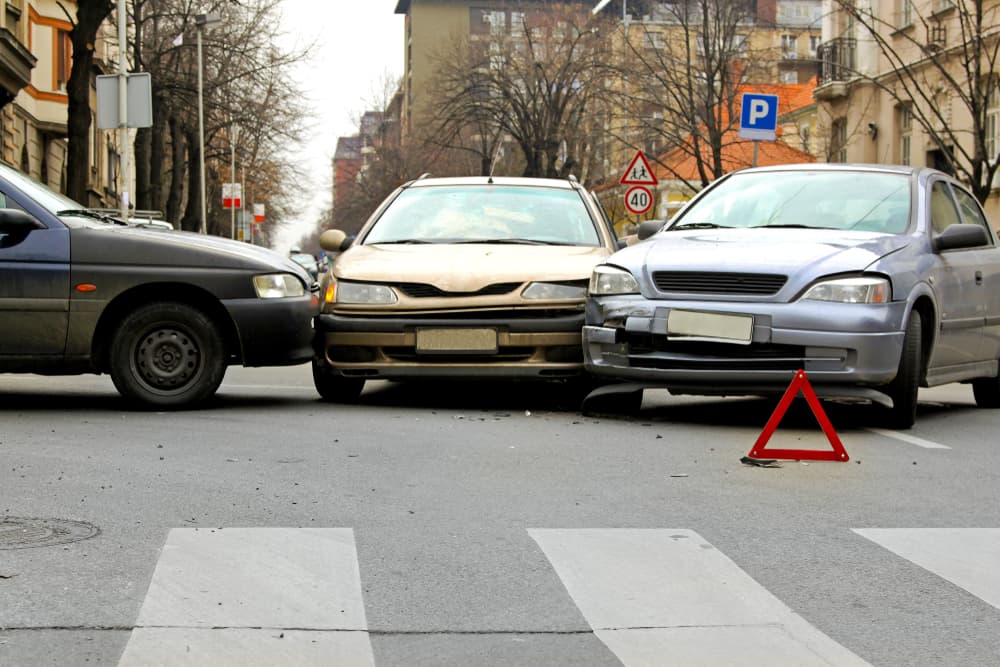Someone hit you in a car accident, and you suffered injuries. You submit your claim to the insurance company for medical bills and other damages. After a month, you receive a settlement offer, but it’s far too low. What are your options?
Settlement negotiations are just that: negotiations. You aren’t obligated to accept any particular offer. However, negotiating with an insurance company on your own can often result in less compensation than you deserve.
A car accident attorney can negotiate with the auto insurance company to maximize your compensation. Learn about insurance company negotiations and settlements below, then speak to a car accident lawyer if you need assistance.
Schedule a Free Initial Consultation Today!
What Is A Car Accident Settlement Offer?
After a car accident caused by another driver, the other driver is usually obligated to pay for your injuries and losses. Most auto accident compensation is paid by the at-fault driver’s insurance company, not the driver personally.
After you submit a claim to the other driver’s insurance company, you may receive a settlement offer. The compensation offered can be for your medical bills, lost income, pain and suffering, vehicle damages, and more. In other cases, a settlement offer may come from your insurance provider.
Most auto accident claims end in settlements instead of a car accident lawsuit being filed. Settlements are less expensive and faster than lawsuits, and both sides often prefer to resolve the matter without additional expense and risk.
What To Know About The First Car Insurance Settlement Offer
After your medical issues and other damages are well established, you may receive the initial settlement offer from the insurance company. There are several things to remember about the first settlement offer:
- You have the right to refuse the first settlement offer and subsequent ones. However, there will come a point when refusing settlement offers won’t lead to additional compensation. At that point, you can either accept the final offer or file a personal injury lawsuit and take your chances in court. Remember that if the jury rules against you, you won’t be compensated for your losses.
- The first settlement offer may come in before you fully understand all your losses. For example, if you break several bones in a car accident, you can get a settlement offer before all the bones heal and your rehabilitation is complete. Taking a settlement before reaching maximum medical improvement (MMI) is unwise. It’s preferable to wait until your recovery is complete to take a settlement.
- The first offer is rarely, if ever, the final offer from the insurance adjuster. The initial offer is typically a lowball offer to see if you and your car accident attorney understand the value of your case.
Why You Shouldn’t Settle Too Quickly
Most injury victims have medical bills and may be out of work, so it’s understandable you probably want money as soon as possible. That’s another reason why initial settlement offers are usually low. The insurance company wants to see if your desperation for money will cause you to jump at the first settlement offer.
The initial settlement offer is merely the beginning of settlement negotiations, and you should be patient. The insurance adjuster will initially commit the minimum amount to settle your claim. If their client is obviously at fault for the car crash, their adjuster may even call you within hours of the accident with a settlement offer.
They can, for example, offer a few hundred or thousand dollars or promise to pay all of your medical bills. This may sound good if you don’t understand insurance negotiations, but you might deserve much more money than the initial offer.
What Happens If You Reject A Settlement Offer?
Typically, the insurance company will either make a different offer or tell you the last offer is the final one. It will rarely revoke an offer because you rejected it. It’s also rare for the insurance company to offer less than what they did before. If you think the initial or subsequent offer is too low, you and your attorney should feel free to reject it.
What To Do After Rejecting The Insurance Company’s Offer
After you receive the first settlement offer, this is a good moment for you and your auto accident lawyer to send a detailed demand letter to the insurance company. If the next offer seems too low, you should ask the insurance adjuster to give specific reasons for the low offer.
Draft A Demand Letter
The demand letter is your opportunity to present how the accident happened, your injuries and damages, and what you want in compensation. It also covers your prognosis and who was at fault. The letter features details and documentation of all aspects of your case and ends with a dollar figure that you will take to settle the matter.
Ask For Information If Offer Is Extremely Low
After receiving the demand letter, the insurance company may respond in a few weeks. Perhaps they will offer a sum that is a bit below what you asked for. If so, you can either accept it or counter with a slightly higher offer. However, if the offer is far below what you demanded, it may seem like settlement negotiations won’t bear fruit.
If this is the situation, the next step is to ask the adjuster to explain why their initial offer was a fraction of what you requested. Ask them to give you details about each argument or point you made in the demand letter, such as:
- The explanation about how the car accident happened and who is responsible. If the insurance company is contesting liability, ask them to explain their reasoning.
- The extent and type of damages you suffered, including your medical bills, pain and suffering, and lost earnings. If the adjuster questions your economic damages, provide additional evidence about your hard expenses from the crash, such as medical bills and pay stubs. If they question your pain and suffering, provide more information about your discomfort, ideally from your doctor.
- How the accident has affected your life mentally and physically. You may want to provide more information from your journal about the pain and limitations you have.
Following with another letter after the demand letter will hopefully get the insurance company closer to the amount you requested.
What To Do If The Insurance Company Is Stalling
Sometimes, car accident claims can take months. You can start to feel as if the insurer isn’t taking your claim seriously or they are dragging their feet. It’s important to be patient, but at the same time, there reaches a point where the insurance company might be delaying things as a negotiation tactic.
If this is happening to you, compose an email or letter asking the adjuster to update your case status by a specific date, such as in ten business days. Ask the insurance adjuster to pinpoint any documentation or information they still need so you can give it to them.
If you do not receive a status update or the answer isn’t what you wanted, you should remind the adjuster that you still have much time to file a personal injury lawsuit. Further, state that you are ready to go to litigation with your car accident lawyer if you don’t see significant progress in the case soon.
What Affects The Accident Settlement Amount?
It’s also possible that you might be asking for more than your claim is worth. This can happen, especially if the injured party doesn’t retain an attorney. Generally, you should hire an auto accident lawyer if you have substantial injuries that don’t heal on their own after a few weeks. If you try to handle your case and draft your demand letter, you can be in a much weaker position, as many complicated factors may affect your claim value. Always let a car accident attorney handle this process.
Who Was At Fault
If the other driver was solely liable for the crash that injured you, your claim will be solely against their insurance coverage, which might be limited. But if another party was partially responsible for the crash, you can seek compensation from additional insurance companies, possibly increasing the available coverage. Make sure you understand who is liable for the accident and hold each party properly accountable when writing your demand letter.
The Severity And Type Of Injuries
Your kind of injuries are one of the largest factors in the settlement amount. The nature and severity of injuries will greatly influence what you receive.
More serious injuries usually lead to bigger payouts. For example, if you have a traumatic brain injury that requires weeks of care and months of rehabilitation, the case can be worth more than if you just had cuts and bruises that heal with some initial treatment at urgent care.
Another example of a common car accident injury is a soft tissue injury, such as whiplash. Whiplash is an injury to the neck’s various soft tissues and occurs when your head whips back and forth during a car accident. It can be painful and debilitating. However, whiplash is tricky to diagnose and difficult to see on imaging scans. Consequently, insurance companies may question your injury and the damages you claim.
Car accident attorneys understand that all injuries deserve compensation from liable parties and will fight to prove the full value of your claim, no matter what type of injuries you suffered.
Promptness Of Medical Care
Another factor affecting the claim size is how quickly you receive medical care. Ideally, you went to your doctor or ER the same day as the crash. A medical professional should have noted your injuries that day and that they were caused by a car accident.
However, patients don’t always get medical care promptly after a crash. Even if you think you feel fine, waiting to see a doctor is usually a mistake. Stingy insurance companies will use any excuse to pay you less or even deny the claim outright. If you didn’t get immediate medical care, the adjuster can argue that the crash didn’t cause your injuries.
Always seek medical care for your car accident injuries within 24 hours or less. This action ensures that your injuries are treated and noted in prompt medical records so you preserve your legal options for the future.
Statements You Made
Things you said after the car accident also can affect the settlement amount. This is especially true if you talk to other drivers involved in the accident. It is also important to talk to insurance adjusters on the phone. There are several things you can say or do after the crash that negatively affect your claim:
- You told the other driver that you may be partially at fault for the accident, even if you weren’t. Accepting liability can be hugely problematic in a claim and your ultimate settlement. Don’t mention liability to the other drivers at the crash scene.
- You told someone at the scene or the insurance company that you were' okay’ or ‘feel fine’ after the crash. These simple words can be used to argue that you weren’t hurt.
- You didn’t follow up on all of your medical treatments. You can’t claim serious injuries and compensation if you don’t follow your doctor’s treatment plan. Go to every scheduled appointment and promptly make up any missed ones.
- You agreed to provide a recorded statement to the other insurance company. Recorded statements can be used against you to reduce your deserved amount. It’s better to talk to the other insurance company as little as possible. Instead, have your car accident attorney handle all insurance company communications.
The insurance adjuster is there to do their job: ensure that their employer pays as little as possible, even for valid claims. Always consider having a car accident lawyer handle every communication with stakeholders in your claim. Doing so ensures you won’t say anything that negatively impacts your settlement.
Contact A Car Accident Lawyer Today
Were you offered a settlement for a car accident? Do you think it wasn’t enough to cover your losses? Or are you thinking about hiring an attorney to handle your claim? A car accident attorney can negotiate aggressively with the insurance company for the most cash for your losses. Talk to a personal injury attorney in your state today to help with your car accident claim.







